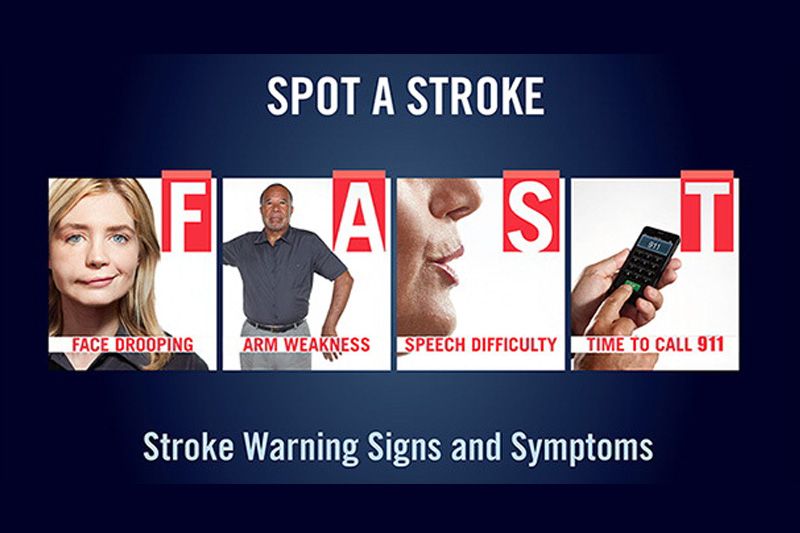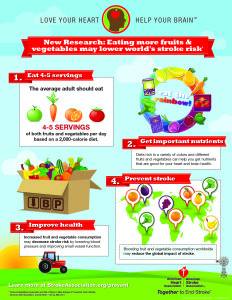BY JEANMARIE MILLA
Stroke is the No. 5 cause of death in Americans. Every 40 seconds, someone in America has a stroke. On average, every four minutes, an American dies from stroke. Stroke is also the leading cause of long-term disability.
According to a 2015 American Heart Association Circulation statistical report update, African Americans have nearly twice the risk for a first-ever stroke than Caucasians, and a much higher death rate from stroke. In fact, African Americans are more impacted by stroke more than any other racial group within the American population. But did you know that 80 percent of strokes are preventable?
Verizon has teamed up with the American Heart Association Tampa Bay to teach all members of the community how to prevent, beat and treat stroke. The first step is to learn the acronym F.A.S.T. If you or someone near you is experiencing Face dropping, Arm weakness or Slurred Speech, then it’s Time to call 911. When it comes to a stroke, time is brain. Clot busters and clot-removal procedures must be administered within a few hours of stroke symptoms, so it’s crucial that a stroke victim get to the hospital immediately.
A recent survey showed that only 8 percent of people can identify each letter in F.A.S.T. We are doing everything we can to increase that number in Tampa Bay. In the past year, we’ve engaged more than 10,000 community members with F.A.S.T. We want you to learn these warning signs, too, and share them with your family and loved ones.
Many Americans don’t see stroke as a major health threat. It is also a common misconception that stroke only affects elderly people. However, stroke can happen to anyone, at any time. African Americans are more likely to suffer a stroke at a younger age. Among people ages 20 to 44, African Americans are two to three times more likely to have a stroke compared to Caucasians. With young people being susceptible to stroke, it’s never too early to adapt a heart healthy lifestyle that can prevent stroke.
To reduce your risk of stroke, follow these seven steps:
- Don’t smoke
- Smoking is the most preventable cause of premature death in the United States.
- Maintain a healthy weight
- A body mass index (BMI) of less than 25 is optimal for cardiovascular health.
- Engage in regular physical activity
- Get moving for at least 30-45 minutes a day.
- Eat a healthy diet
- Say yes to fruits and vegetables, fiber-rich whole grains, fish, and low-fat dairy products.
- Manage blood pressure
- Rates of high blood pressure among African Americans is among the highest of any population in the world. High blood pressure is often called “the silent killer” because it has no symptoms, so you may not be aware that it’s damaging your arteries, heart and other organs. You can live five years longer with normal blood pressure (120/80) than with high blood pressure.
- For more information, visit www.heart.org/bloodpressure.
- Take charge of cholesterol
- High cholesterol can cause blocked arteries, which can lead to heart attacks, heart damage or heart failure.
- Keep blood sugar, or glucose, at healthy levels
- High blood sugar increases your risk for diabetes, heart disease and stroke. Diabetes increases stroke risk at all ages. African Americans, Hispanics, and other ethnic minorities bear a disproportionate burden of diabetes in the U.S.
- Losing weight, eating healthy and increasing physical activity can dramatically reduce the progression of type 2 diabetes and help control type 1 diabetes. In many instances, lifestyle changes must be complemented by a regimen of medications to control blood glucose levels, high blood pressure and cholesterol as well as to prevent heart attack and stroke, which claim the lives of many diabetes patients.
- By working with your health care team, you can set personal treatment goals, monitor your critical health numbers, and successfully manage diabetes while preventing complications.
- For more information, visit www.heart.org/diabetes.










